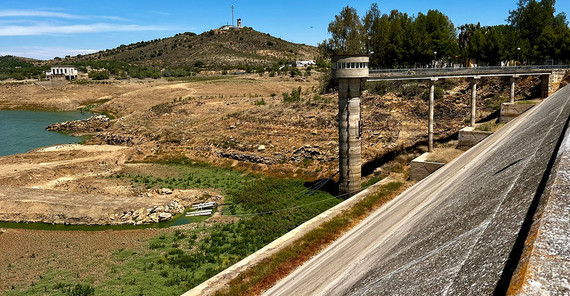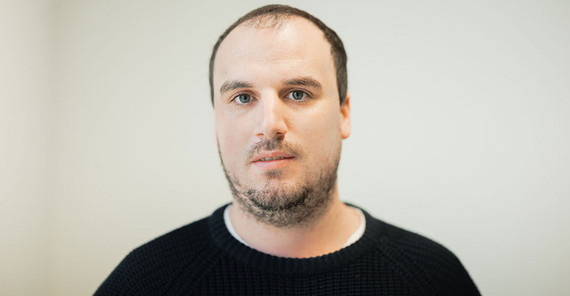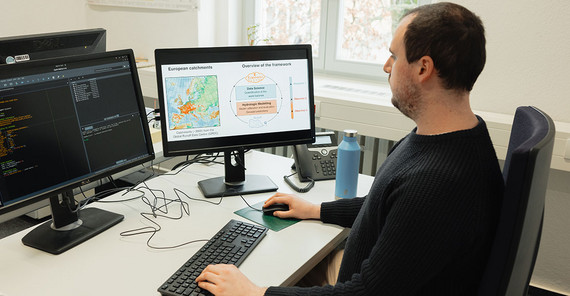Can you describe the project you will be working on at the University of Potsdam?
The idea of the project is to quantify the water balance in Europe under present and future climatic conditions. The water balance describes how precipitation in a catchment area divides into river flow and evaporation. I work with extensive datasets that include information of precipitation, evaporation, runoff and temperature and try to adjust the hydrologic models to them. The challenge is, there is a high uncertainty in these datasets, particularly in the evaporation datasets. By combining various datasets from past decades and adjusting the models to them, I want to find out how reliable they are. In a second step, the calibrated parameters are used to run the models with future data, to estimate the development of the water balance until the end of the century.
Which datasets and software do you use?
One example is a daily observational dataset E-OBS of the European Union’s Copernicus program that includes, among others, precipitation, temperature, air pressure and humidity all over Europe from 1950 to present. Another is the Global Runoff Data Centre, a world-wide repository of river discharge data and associated metadata provided by the Bundesanstalt für Gewässerkunde. My approach is termed large-sample hydrology and involves statistical analysis of data from a large number of catchments at the European scale with the programming language Python.
What do you want to achieve within the next two years?
I have three objectives: first, to quantify and analyze the water balance for the European catchments from a data science perspective using multiple hydroclimatic datasets. My second goal is to integrate the combination of streamflow and evaporation data into model calibration. To do this, I use the Variable Infiltration Capacity (VIC) hydrologic model and calculate my results on the High Performance Computing Cluster here at the University of Potsdam. By calibrating the model, I can test if it is performing well or not according to the data and I am able to develop a workflow in VIC. I already did this for Spain during my PhD at the University of Granada and now want to apply that throughout Europe. Third, I want to evaluate the new generation of decadal prediction systems in terms of runoff and evaporation model performance. Apart from research, I would like to supervise master students in the program “Climate, Earth, Water, Sustainability”.
Why is it important to include evaporation data into hydrological models?
Evaporation is growing worldwide due to climate change and is gaining increasing attention as a calibration and evaluation variable to improve the physical realism of the hydrologic models. However, the traditional focus in model analyses was to work only with runoff data and to ignore evaporation. Through my own analyses I already published, I recognized the importance to include the effect of evaporation. I compared the model performance with two different calibrations: one which accounts only for the runoff in rivers and another that accounts for both, runoff and evaporation, and it makes sense to work with both in combination.
You are guest at the working group “Hydrology and Climatology” of Prof. Axel Bronstert. How did you get into contact?
I studied some papers from people working in his group and I found, they use similar approaches to what I did in Spain during my PhD. Since the fellowship for my PhD allowed me to go abroad for some months, I contacted Axel Bronstert and I was able to spend two months in his group in 2022. The idea was to show my work and to find a suitable postdoc fellowship. Fortunately, I met all the criteria for application at the Humboldt Foundation and Prof. Bronstert agreed to be my host, so I applied successfully for the postdoc fellowship.
Did you already learn German?
Yes, I did a four-month language course offered by the Humboldt Foundation from September to December 2023 in Berlin. It was an intensive course in a small group with five hours a day over five days a week. Every two weeks, you change levels, so you get to know new colleagues and you talk about different topics. I like the German language and I made good progress.
Do you have a favorite place in Potsdam or Berlin?
I really enjoy to stroll through the traditional farmer’s market that takes place every Saturday on the Weberplatz in Potsdam Babelsberg. They offer regional fruits, vegetables, bread, marmalade, meat and fish and much more. Since my family comes from the countryside, I appreciate fresh farm products and I try to visit the market every week.



